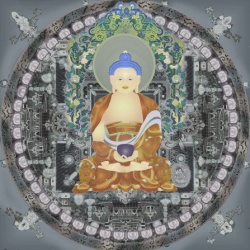Chun-fang Yu Sheng Yen Professor in Chinese Buddhist Studies Columbia University
Chün-fang Yü was born in China and educated in Taiwan, graduating from Tunghai University with a major in English Literature and minor in Chinese philosophy.
She received a MA degree from Smith College in English Literature and a Ph.D. from Columbia University in Religion, specializing in Chinese Buddhism.
She taught at Rutgers, the State University of New Jersey from 1972 to 2004 when she returned to Columbia. She is the Sheng Yen Professor in Chinese Buddhist Studies, a faculty member in both Religion and EALAC.
Her research interests are quite broad. Her early works deal with the history of Chinese Buddhist thought and institutions and later on she focused equally on Buddhist rituals and practices. Her first book,
"The Renewal of Buddhism in China: Chu-hung and the Late Ming Synthesis" (Columbia University Press 1981), is one of the earliest studies in English on post-Tang Buddhism. Other articles dealing with Chinese Buddhism in the late imperial period include:
“Chung-feng Ming-pen and Ch’an Buddhism in the Yuan” (1982), “Ch’an Education in the Sung: Ideals and Procedures” (1989), and the Cambridge History of China’s “Buddhism in the Ming Dynasty” (1998). She is also interested in the interaction between religions, including Buddhism,
With Susan Naquin, she co-edited "Pilgrims and Sacred Sites in China" (1992). She is the editor of "The Ultimate Realm: Doctrines of Tienti Teachings, A New Religion" (1994). More recently, she wrote "Kuan-yin:
The Chinese Transformation of Avalokiteśvara" (Columbia University Press 2001) which traces the patterns of the evolution of the cult of Kuan-yin through the various medias of transmission.
Her current research interests continue her fascination with the transformation of Buddhism in China. She is completing a study of contemporary Buddhist nuns in Taiwan and has begun a new project.
Tentatively entitled “The Creation of a Buddhist Pantheon”, it studies the pairing of two bodhisattvas: Guanyin and Dizang, in iconography and temple architectural layout from the tenth century on.
